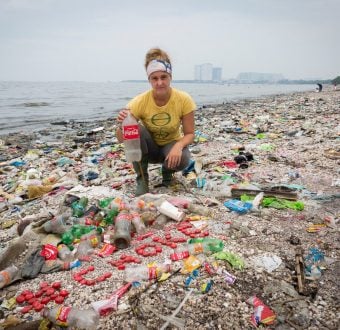Chemical security stands out as one of the most neglected critical infrastructures most vulnerable to catastrophic terrorist attacks. Secretary Ridge and Attorney General Ashcroft have recently warned of new domestic terrorist attacks as early as this summer. “The failure of both the Congress and the president to regulate the chemical industry among growing threats of terrorism is patently hypocritical.” said Rick Hind of Greenpeace.
Representative Edward Markey (D-MA) had two amendments prepared on chemical security. One would have addressed chemical plant threats, the other would have addressed the vulnerability of transporting “extremely hazardous materials.” Neither of his bills was considered “germane” by Committee Chairman Rep. Cox (R-CA). “The negligence on protecting the chemical sector is beyond irresponsible. It’s as if the Congress and the White House believe the terrorists will take the summer off,” said Hind.
A broad consensus exists on both the vulnerability and the magnitude of such an attack by a wide range of experts at the Department of Justice, the CIA, FBI, U.S. Army, RAND Corporation, Brookings Institute, General Accounting Office (GAO), Congressional Research Service, EPA, Naval Research Laboratory, Argonne National Laboratory.
A fatal flaw in the chemical industry’s voluntary programs and legislative agenda is its focus on fence-line security. Guarding a plant perimeter, although necessary, is inadequate in preventing dedicated terrorist attacks and has been dramatically exposed by the media as woefully lacking even on its own terms. Prevention through safer technologies is clearly the best answer.
Barring a catastrophic attack or accident, the influence enjoyed by the chemical industry with the Bush administration and Congress seems to have guaranteed that no action on chemical security will occur in 2004. Meanwhile, the lingering war in Iraq has only added to the increasing number of terrorist threats.
However if the Bush administration wanted to take immediate action as part of their implementation of the 9/11 Commission’s recommendations they could:
Use its authority under the Clean Air Act’s “general duty clause” (section 112 r) to require chemical plants to prevent disasters by using safer technologies.
Support HR. 4824 or regulations to prohibit the shipment of large quantities of the most dangerous hazardous substances through highly populated areas like Washington, D.C., especially, those referred to as “toxic by inhalation” (TIH).
Support the enactment of S. 157 and H.R. 8161, which would strengthen and ensure the permanence of strong regulations under Clean Air Act at the highest risk facilities and require companies to show proof of any claim that they cannot afford to prevent disasters by using safer technologies.

